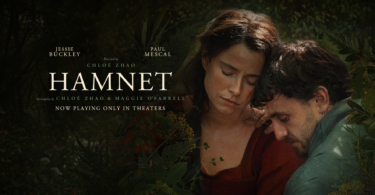
THOMASTON, Connecticut, U.S.A. — We’ve all heard the stories of Van Gogh, especially the famous ear tale.
We’ve seen the paintings time and time again. For most of us, I would imagine, his most famous painting, “Starry Night,” is permanently etched into our minds.
And now the Thomaston Opera House has given us another chance to experience the life of Vincent Van Gogh, with its one-man show “Vincent,” written by Leonard Nimoy (or Mr. Spock, if you wish).
The cast consists of Paul Revaz, playing the role of Vincent’s younger brother, Theo.
It took some coaxing to get me to go to see it on its final day at the opera house because although I do love Van Gogh, sitting through an hour and 45 minutes of one man standing on a stage talking did not sound compelling.

Theo van Gogh, 1888
The fact that I was, by far, the youngest person there did not make the situation any more promising.
The modest set consisted of two screens at the back of the stage, a desk, an easel and a bureau.
As the play begins, we see Theo enter the room, just after the burial of his brother Vincent.
Throughout the play, Theo finds comfort in the audience, using it as friends to whom he can vent the feelings he was not able to show at the funeral.
Using the real letters of Vincent Van Gogh to Theo, and a slide-by-slide timeline of Vincent’s work, the audience is exposed to the art of Van Gogh on a personal level: a way to see him as a lover, and not just the man who cut off his ear and was put in the asylum.
As Theo vented his emotions, he looked back on the letters of his brother and read what Vincent had written.
But he did not play the role of Theo reading Vincent’s letters. Instead, he became Van Gogh himself, as he wrote these letters to his brother, showing all the joy and all the pain that went with his words.
In this way, the audience witnesses Vincent’s beginnings, the way we never see him depicted, as a young man in love with life who hopes to spread his joy among others through his good works.
As Theo reads on, we see Vincent’s life grow dimmer and drearier, until finally we reach the asylum days.
And we all know how the play will end.
I had seen the paintings; I had heard the stories; but until I saw this play, I never knew Vincent.
Director John Long adapted this play to the small stage with magnificent skill, making the audience feel like family and making Theo our own brother.
The play was forceful, morose and even humorous at times, as Theo read through the letters and told us the tales.
It was compelling, something that I never thought a one-man show could ever be.
When the lights turned on, and the single actor exited, I wanted to find my new friend Theo, and cry with him for the loss of our brother, because now, I know Vincent.
Julia Cocca is a Reporter for Youth Journalism International.



